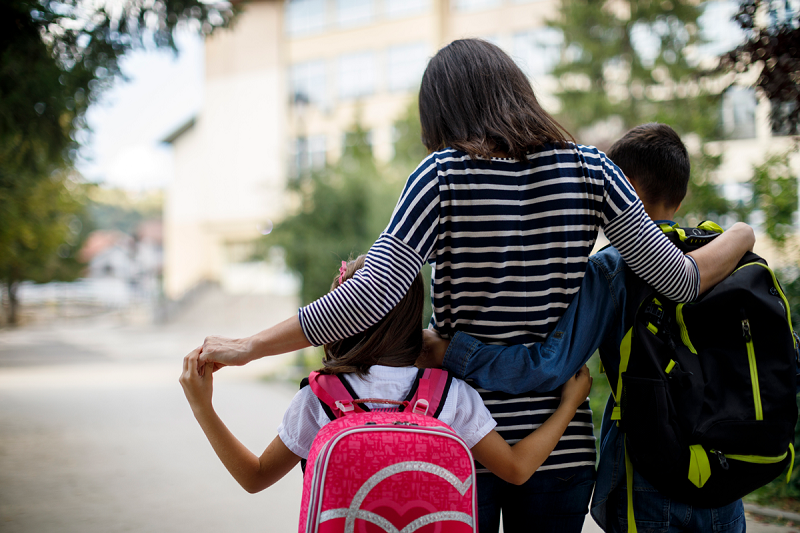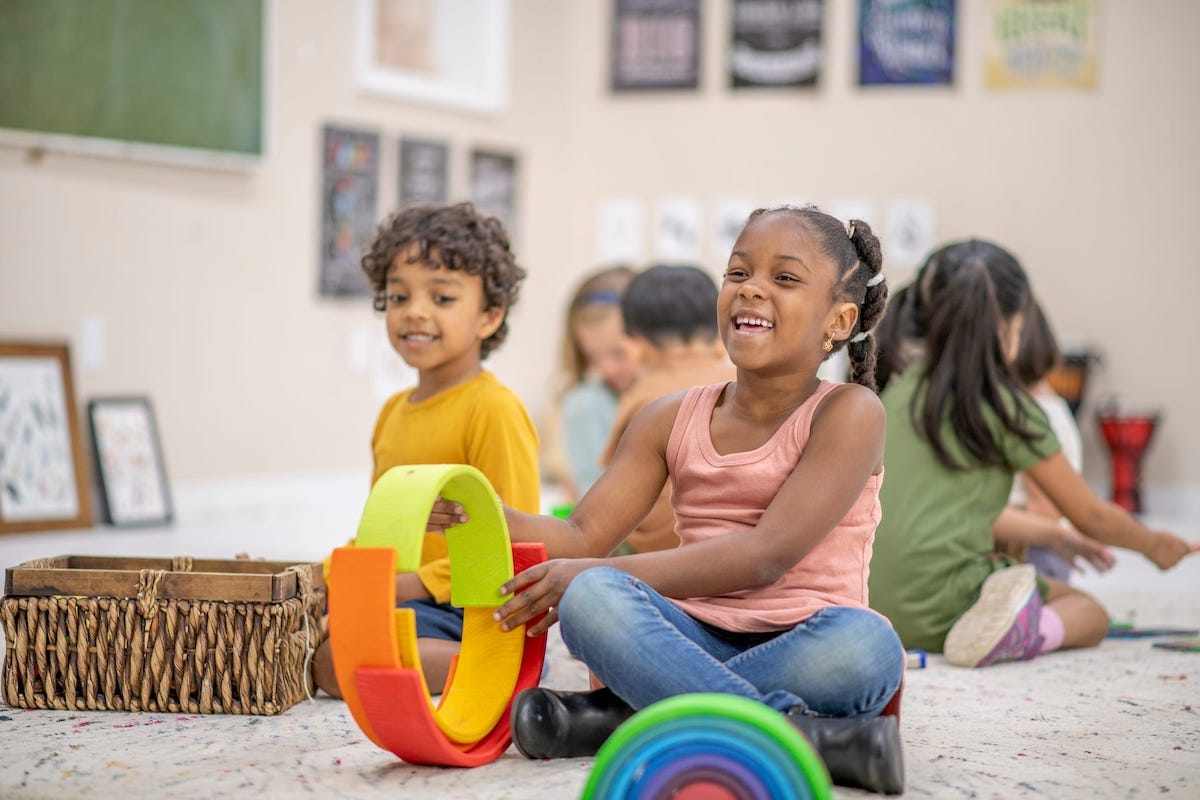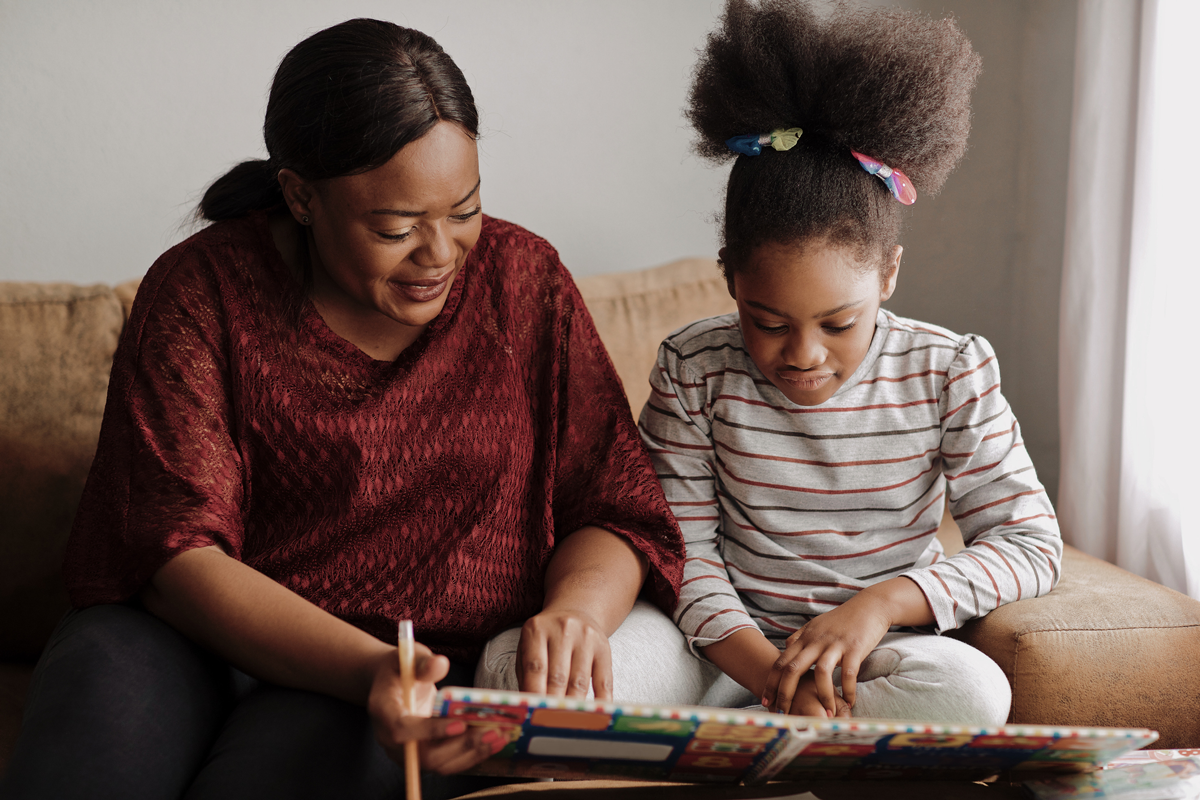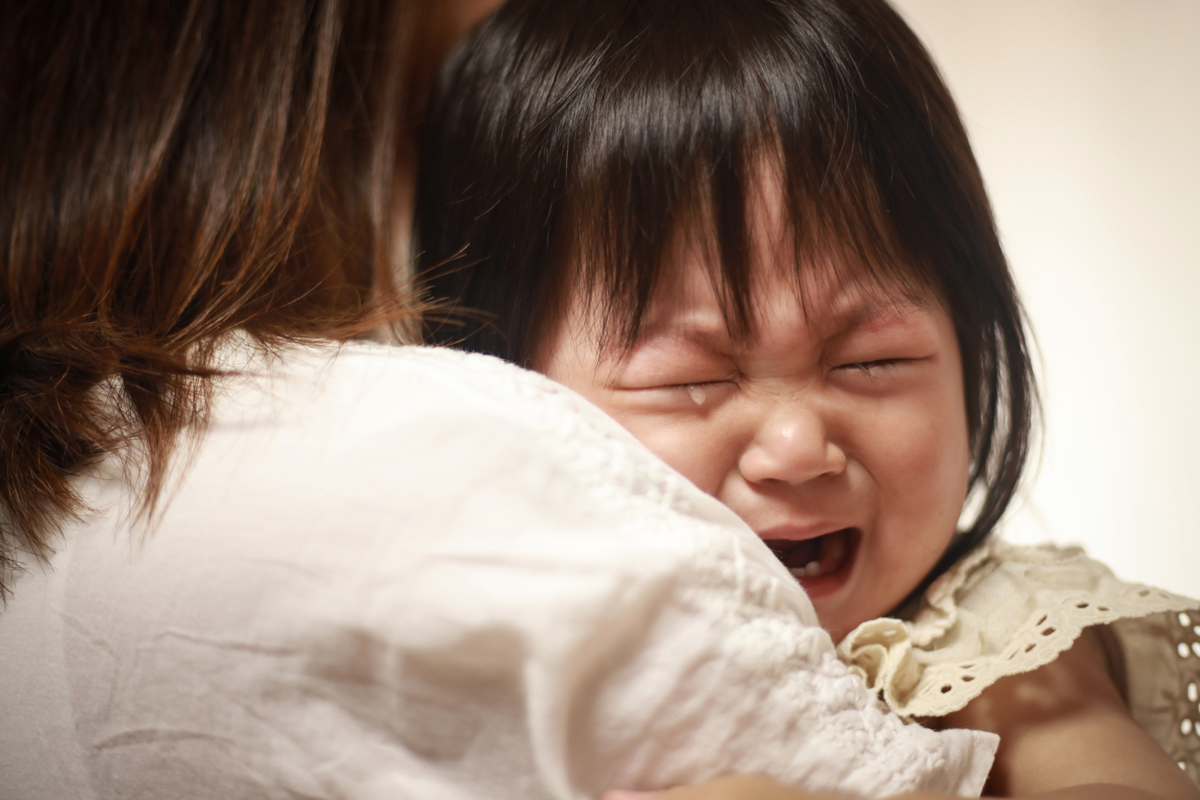It’s a common misconception that therapy is supposed to make people happy. As a child psychologist, I regularly advise parents that my job is not to eliminate their children’s frustration, anxiety, and disappointment; instead, I am supposed to help kids process, tolerate, and perhaps even see the value in these emotions. Feeling bad is not always bad, and it’s critical that children face obstacles, small and big, with a measure of independence, so they can learn to navigate the challenges of life that will always surround them.
All that advice has gone completely out the window watching my 4-and-a-half-year-old daughter, Eleanor, start pre-K at the public school in our neighborhood.

I am fortunate to live in New York City, where we have universal public pre-kindergarten, and that we are zoned for a well-regarded school. But Eleanor’s transition to public school from her private synagogue-based nursery school has not been easy. The public-school day is longer, the building is busier, the class size is larger, and, most significantly, there is so much that is new for her — she started the school year not knowing a single kid in her class. And as her mom, it has been heartbreaking each morning to watch my silly, enthusiastic daughter appear anxious and reserved as she walks into the school building.
My first instinct, like many parents, is to get involved in an effort to “make things better.” Eleanor’s teacher generously provided us with her cellphone number. I could text her and request updates and pictures from the day. I could hound the PTA president for a class contact list so that I could start scheduling play dates with her classmates. I could call our prior nursery school and beg them to take her back for the remainder of the school year, and then transition her to public school next year when she seems a little bit older and more mature.
Frankly, I think taking action would do a lot to relieve my own anxiety and guilt, and, somewhere in the emotion center of my mind, it would reassure me I was being a good mom. But I’d be wrong: rationally, I know that the best thing I can do for Eleanor at this point is to remind her that she’s safe and to be patient as I wait for the day — which I imagine is not so far away — when she develops comfort in her environment and school seems not so new anymore. And in the meantime, I can remind myself, as I remind the parents of children in my practice, of the confidence she’ll develop as she begins to internalize that she can adjust to major life changes, to regulate her own emotions, and to develop new relationships without my involvement.
So how involved should I be in my kid’s school?
Since my research and clinical practice focus on cognitive development and learning, I interact every day with families of children who are struggling in school, and I know that there is no one-size-fits-all approach to parenting that is perfect in supporting academic development. That said, there has been a lot written about helicopter parenting, and a recent rise in maladaptive parental overinvolvement connects to our increasingly achievement-focused culture. We have collectively become terrified of letting our kids take risks, and though we may have the best intentions in mind when we try to protect our kids from stress and disappointment, we are actually doing them a major disservice. The pioneering work of Carol Dweck on the concept of a growth mindset, coupled with Angela Duckworth’s research on grit, underscores that adversity is not always negative. Instead, they emphasize that setbacks can serve as invaluable learning opportunities, fostering resilience and perseverance — key qualities in achieving long-term success in life.
Take homework, for instance. I’ll leave the never-ending debate about the purpose and value of homework to others for now. But one indisputable benefit of homework is that it helps kids develop metacognition: thinking about their own thinking, and understanding what they do and do not yet know. It’s one thing to sit in a classroom and follow along as a teacher solves a math problem on the board. It’s another thing entirely to go home and attempt a similar problem independently. Kids will never really know if they can do math without doing it on their own. And parents who are overly involved in homework — who sit with their kids and do the homework “together” or, alternatively, who bring in homework helpers and tutors — deprive their children of that experience entirely. And perhaps most importantly, they deprive kids of the chance to struggle and fail, to increase their frustration tolerance, to learn from mistakes, and to feel a true sense of ownership and accomplishment when they finally succeed.
That’s not to say that parents should remain completely uninvolved in kids’ homework. Homework is also meant to help kids develop their executive functioning: the cognitive processes that enable us to plan, organize, initiate, manage time, sustain attention, switch focus, and adapt to changing circumstances, all of which are essential for goal-oriented tasks and problem-solving. These skills don’t develop in a vacuum. Parents and other caregivers can — and should — support executive functioning by supporting homework completion: helping kids organize a to-do list, stay on task, prioritize, take necessary breaks, keep track of materials, and meet deadlines.
But there is an important distinction between completing homework and getting everything right. Parents shouldn’t concern themselves with whether the work is correct. In fact, even if they know it’s all wrong, they should encourage their kids to hand it in as-is. It’s completely understandable that many parents find it challenging to accept when their children submit homework that they know is incorrect. We all want to see our children excel! However, it is the parents’ job strictly to make sure the work is complete, consistent with teacher instructions, and handed in on time — nothing more. If the urge to correct every error becomes overwhelming, perhaps try to take a step back and focus more on effort and progress. Or just don’t look! Remember that, sometimes, it’s best not to scrutinize every answer too closely and instead emphasize the importance of the learning process itself.
The same idea applies to parent-teacher communications. I’m all for strong parent-teacher alliances: family engagement in school communities not only strengthens educational partnerships between parents, teachers, and students but also sends a powerful message to children that their education is valued and prioritized by their loved ones. Get involved in class by joining the PTA, becoming a lunch volunteer, or chaperoning field trips if time allows. But often it is best if the parent takes a step back and allows the child to negotiate their own relationship with the teacher. Rather than reaching out directly to the teacher, the parent can encourage — and perhaps coach — the child to reach out on their own. This advice holds true regardless of the child’s age, even if (especially if!) the conversation that needs to happen is a difficult one. Teaching children to speak assertively to teachers fosters communication skills, confidence, independence, and a sense of responsibility. It allows them to manage conflict and advocate for their needs and concerns, and, ultimately, it prepares them for effective self-advocacy in the future.
Admittedly, all this is so much easier to say as a psychologist than it is as a parent. But even when it comes to Eleanor, I constantly remind myself that the best thing to do when my daughter struggles, in and out of school, is to take a step back. Rather than intervening, I can focus on three things:
- I can practice active listening, providing space for her to talk about her concerns without immediately offering solutions or criticism.
- I can promote a growth mindset by emphasizing the importance of effort, perseverance, and learning from setbacks.
- And if it all becomes too overwhelming for me, I can seek guidance and support from my own friends, family, or professionals.
It’s natural to see Eleanor as my baby, but I understand that she won’t be a baby forever, and it’s my responsibility to help her grow and develop into a resilient person. While I might want to shield her from negative feelings — and trust me, I do — I also know that I must allow her to experience and process the full range of her emotions. I’ll provide a safe and empathetic space for her to express herself, offering guidance and encouragement as she learns to confront and overcome adversity on her own.
Community Guidelines

















Log in
I very much appreciate this idea…in theory. In practice, things are always much more nuanced. I am an educator and came into parenting as a huge advocate of the struggle-to-learn mindset. However, my child has ADHD and what I thought was a slight struggle and learning opportunity often turned into a huge meltdown. I had to adjust my expectations of what I thought he “should” be able to do on his own and realize that his development is asynchronous and he often needs more support that I would expect given his age and some of his other skills. I often have to be more involved in his schooling than I would have expected, both for executive functioning support and to facilitate relationships with teachers. There are certain teachers that he has struggled with, likely due to features of his ADHD. Unfortunately, leaving him to manage those relationships on his own has sometimes led to shame and disciplinary action instead of support. While I don’t want to be a helicopter parent and I consciously allow him to take risks in many areas, I also want to avoid the shame I remember from my own childhood. I need to provide a certain level of support – more than I anticipated – in order to allow him to take risks and learn to advocate for himself and his needs. So I caution parents to hold this ideal, but proceed with caution in a way that makes sense for their child.
I like looking at homework, pretty rare for our elementary kiddos, as it gives me a tiny window into their school experience, which is mostly a black box for me. I went to a PTA meeting but it was all about selling sweatshirts and the like, and didn’t actually make me feel involved. I jump at every chance to chaperone but even so didn’t meet our teacher last year until April conferences, 2 weeks before she left on medical leave for the rest of the year. It is so hard to get involved and get a sense of what they do at school! And if they have homework in the early years they may not even be able to read it or understand directions without parental help. I totally get backing off for older kids, but like seeing their work for now.
Yes, I really identify with this comment. I’ve been able to volunteer in my kiddos class and I do feel like I get more communication from his teacher than I expected, but I still like seeing the homework as a window into what he’s learning and how he’s doing. I let him do it himself (usually just 2 or 3 worksheets per week) and I follow along. If he does it wrong, I may point it out but I don’t make him correct it unless he asks for help and I certainly don’t do it for him. It really has helped me think “oh he’s really good at XYZ, but he’s not quite getting ABC”. I couldn’t care less about whether he hands in the homework correct or not, but I may work on ABC with him at home. Or not. He’s still so young!
I really appreciate this article and the reminder that we should let our kids struggle sometimes, and step back and let them have the hard conversations if we can.
I am wondering about the idea that “it is the parents’ job strictly to make sure the work is complete, consistent with teacher instructions, and handed in on time“. My kid is also only 4.5 and doesn’t have homework yet, but from what I’ve read about letting them fail and learn from it, we as parents should stay out of homework even more, and let the kids forget the homework, turn it in late, etc. to learn the consequences of those decisions. Maybe this happens as they get older, maybe its a continuum, but its definitely something I know will be a struggle for me to implement!
I appreciate this perspective very much. I will add one minor friendly amendment to communication with teachers: As a former first grade teacher, I found it very helpful when parents would tell me if something was going on at home or if something big was bothering their kid, so that I could provide the kid extra support, as needed. Little kids aren’t always good at identifying and naming big feelings or challenges, and so sometimes a heads up from parents can be very helpful.